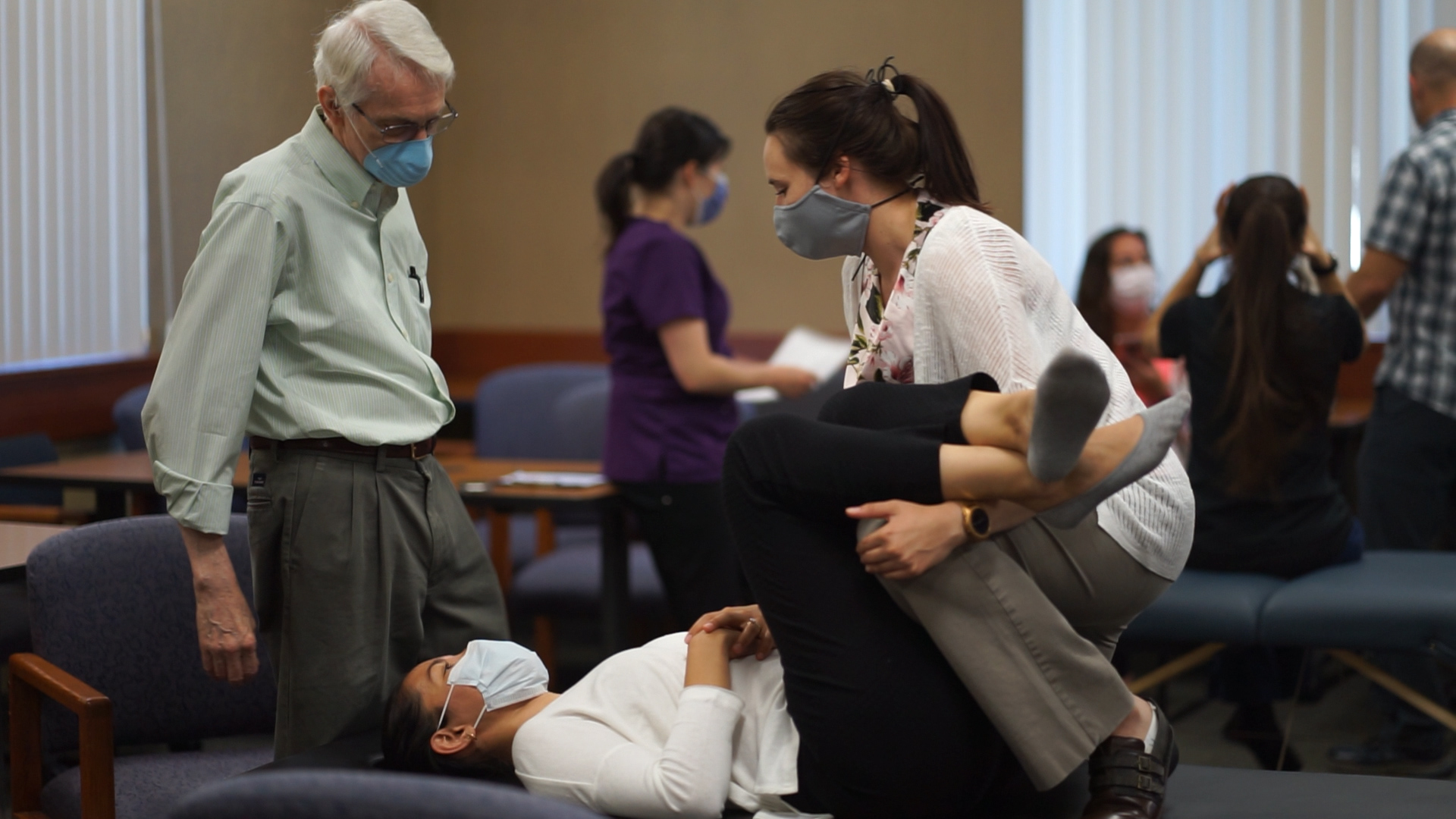Scholarly Activity at CWFM
There is an increasing emphasis of the importance of developing competency in research and scholarly activity during family medicine education. At CWFM-R, we have a robust scholarly activity curriculum designed to give trainees opportunities to fortify skills in research and scholarly activity, emphasizing the need to incorporate scholarly activity and continued learning into one’s own clinical practice.
Quality and Practice Improvement
At CWFM-R we believe in the importance of training physicians on methods to analyze their practice and develop, implement and analyze improvement initiatives. The quality and practice improvement curriculum includes longitudinal and block rotation components. During the three-year residency program, our residents participate in at least two practice improvement projects qualifying for ABFM maintenance of certification points.
During Community Medicine PGY2 residents develop, implement and analyze a quality improvement project via faculty-guided utilization of learning resources from the Institute of Healthcare Improvement. In PGY2 residents work with faculty, organizational leadership and other members of the integrative healthcare team to develop a resident-led longitudinal practice improvement project (ResPIP) centered around identified clinical performance gaps. This rotation also incorporates guest lectures on topics such as data analysis, epidemiology, reimbursement models and other public health concepts.
PGY3 residents continue to strengthen their quality improvement skills by facilitating the implementation and analysis of the longitudinal ResPIP project during the Quality Assurance rotation. Additionally, during this rotation, residents develop and present a morbidity and mortality report based on safety events they experience in their own practice (typically hospital based). The Morbidity and Mortality rounds are presented every two months; residents and faculty are encouraged to invite community members involved in the incident to gain additional perspective on risk reduction and prevention.
Clinical Research and Evidence-Based Medicine
CWFM-R is fortunate to have faculty experts in scientific methodology and clinical research. Residents therefore have an opportunity to become engaged in high quality clinical research given their interests and future career goals. CWFM-R faculty are also highly involved the WWAMI Family Medicine Research Network (FMRN). Faculty and residents therefore can participate in multi-center clinical research studies and practice improvement projects resulting in peer-reviewed, high-quality publications
Throughout residency, residents learn methods of analyzing and applying evidence-based research methods to their clinical practice. At least quarterly, in didactics, residents participate in a PURL-based journal club. Reviewed articles are selected from resources provided by the Family Physicians Inquiries Network (FPIN), an NIH-funded program that reviews and publishes critical review of new research with projected impact on the field of family medicine and primary care practice. During the faculty-led PURL-based journal club, residents learn how to dissect and interpret research articles; with special focus on how the findings are applicable to transforming one’s own clinical practice. Residents additionally have the opportunity to review osteopathic-based research articles to learn how to better analyze and apply research findings to their clinical practice.
During PGY3 residents will further fortify skills in evidence-based medicine by participating in a faculty-led review and publication of a recent journal article pertinent to Family Medicine practice, published through FPIN.
